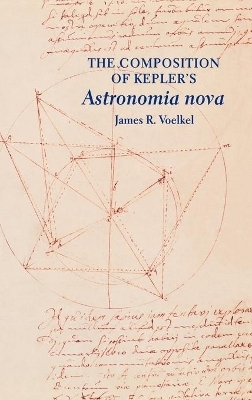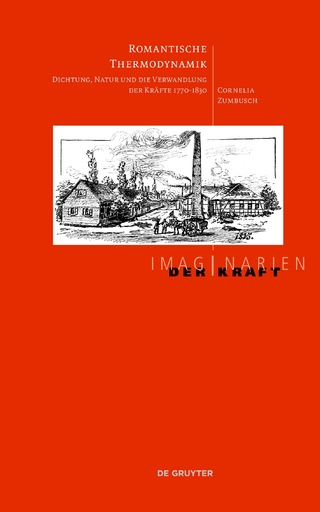
The Composition of Kepler's Astronomia nova
Princeton University Press (Verlag)
978-0-691-00738-0 (ISBN)
- Lieferbar (Termin unbekannt)
- Versandkostenfrei innerhalb Deutschlands
- Auch auf Rechnung
- Verfügbarkeit in der Filiale vor Ort prüfen
- Artikel merken
This is one of the most important studies in decades on Johannes Kepler, among the towering figures in the history of astronomy. Drawing extensively on Kepler's correspondence and manuscripts, James Voelkel reveals that the strikingly unusual style of Kepler's magnum opus, Astronomia nova (1609), has been traditionally misinterpreted. Kepler laid forth the first two of his three laws of planetary motion in this work. Instead of a straightforward presentation of his results, however, he led readers on a wild goose chase, recounting the many errors and false starts he had experienced. This had long been deemed a "confessional" mirror of the daunting technical obstacles Kepler faced. As Voelkel amply demonstrates, it is not. Voelkel argues that Kepler's style can be understood only in the context of the circumstances in which the book was written. Starting with Kepler's earliest writings, he traces the development of the astronomer's ideas of how the planets were moved by a force from the sun and how this could be expressed mathematically. And he shows how Kepler's once broader research program was diverted to a detailed examination of the motion of Mars.
Above all, Voelkel shows that Kepler was well aware of the harsh reception his work would receive--both from Tycho Brahe's heirs and from contemporary astronomers; and how this led him to an avowedly rhetorical pseudo-historical presentation of his results. In treating Kepler at last as a figure in time and not as independent of it, this work will be welcomed by historians of science, astronomers, and historians.
James R. Voelkel is a postdoctoral fellow in the Department of History of Science. Medicine, and Technology at The Johns Hopkins University. He is the author of Johannes Kepler and the New Astronomy.
List of Illustrations ix Acknowledgments xi Preface xiii Introduction 1 PART 1: THE MYSTERIUM COSMOGRAPHICUM 11 CHAPTER ONE: The Copernican Context 13 CHAPTER TWO: The Development of the Mysterium cosmographicum 26 CHAPTER THREE: The Mysterium cosmographicum 46 CHAPTER FOUR: Responses to the Mysterium cosmographicum 60 PART 2: THE ASTRONOMIA NOVA 93 CHAPTER FIVE: Kepler and Tycho 97 CHAPTER SIX: Kepler's Work after Tycho's Death 130 CHAPTER SEVEN: The Tychonics 142 CHAPTER EIGHT: David Fabricius 170 CHAPTER NINE: The Rhetorical Character of the Astronomia nova 211 CONCLUSION 247 Notes 255 Bibliograpby 295 Index 301 Index of Correspondence 307
| Erscheint lt. Verlag | 18.11.2001 |
|---|---|
| Zusatzinfo | 1 halftone, 15 line illus. |
| Verlagsort | New Jersey |
| Sprache | englisch |
| Maße | 152 x 235 mm |
| Gewicht | 624 g |
| Themenwelt | Geisteswissenschaften ► Sprach- / Literaturwissenschaft ► Anglistik / Amerikanistik |
| Geisteswissenschaften ► Sprach- / Literaturwissenschaft ► Literaturwissenschaft | |
| Naturwissenschaften ► Physik / Astronomie ► Astronomie / Astrophysik | |
| ISBN-10 | 0-691-00738-1 / 0691007381 |
| ISBN-13 | 978-0-691-00738-0 / 9780691007380 |
| Zustand | Neuware |
| Haben Sie eine Frage zum Produkt? |
aus dem Bereich


